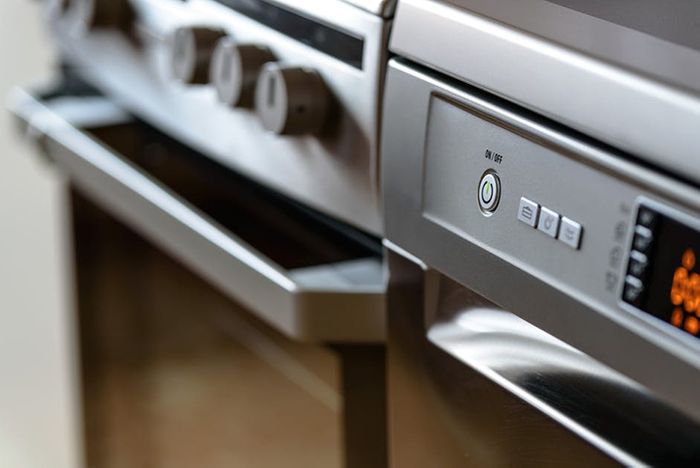
Household appliances use a lot of energy. This is no secret. This is why it's a good idea to utilize as many energy saving tips as possible to reduce the amount of energy that these necessary appliances use. Refrigerators, washers and dryers, and dishwashers all require a lot of energy and although you can't totally eliminate their energy consumption, you can reduce it.
Dishwashers
Dishwashers burn through a very precious resource: water. This is why it's a good idea to maximize each wash cycle by making sure the dishwasher is full and not using scalding hot water. The dishes still get clean without using extremely hot water. Try to run the dishwasher when you're not running the washing machine as well. This is also a water and energy saving tip. In fact, it's probably a good idea to run the dishwasher after the last meal to get as full of a load as possible.
The Refrigerator
Your refrigerator is a major appliance and plays a heavy role in your household by keeping foods cold and preventing them from spoiling, as well as consuming a large amount of energy. Fortunately, there are simple ways that you can reduce the amount of energy your fridge uses. Make sure the temperature is neither too cold nor too warm. If your refrigerator is kept colder than it needs to be, it consumes unnecessary energy. If it's kept too warm your food spoils. It's also a good idea to keep your fridge stocked. An empty fridge burns unnecessary energy, just as a dirty refrigerator can increase energy consumption as well. Keep the interior of your refrigerator clean as well as the exterior and the underside. You might even consider downsizing to a mini fridge or a small refrigerator if you live alone. A smaller appliance will consume less energy and save you money.
The Washing Machine
Washing machines are a necessity in most households and are heavily used. Although it may be difficult to limit the use of this major appliance, there are still things you can do to reduce energy consumption. Wash your clothes on water saving mode and in cold water. It takes more energy to wash your clothing in warm or hot water and it wastes water to use more than you need. It's also a good idea to consider washing and drying your clothes using shorter cycles. This is particularly beneficial when it comes to dryers because they expend a lot of energy. Consider allowing large items to partially dry naturally and then dry them in the machine. In addition, keep your lint trap clean. Your dryer will work much harder and burn more energy with a clogged lint trap.
Be proactive when it comes to controlling the amount of energy your household appliances use. It will help keep your energy bills under control and conserve precious resources like energy and water. Becoming more energy conscious also helps to reduce our carbon footprint in the world.
